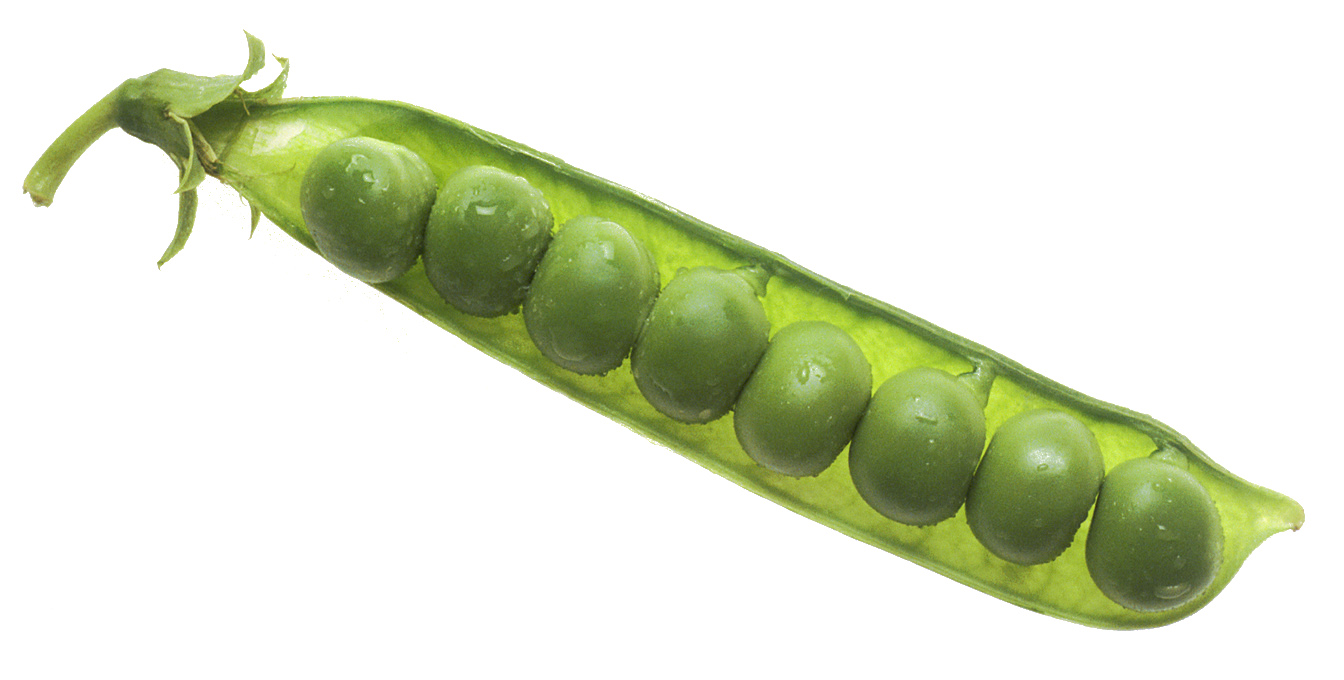Pea
(Redirected from Peas)
Introduction[edit | edit source]
Pea is a widely cultivated plant in the Fabaceae family, which is also commonly known as the Leguminosae family. The scientific name of the pea plant is Pisum sativum. Peas are one of the oldest cultivated crops and have been used as a food source for thousands of years. They are a valuable source of protein, fiber, vitamins, and minerals, and are widely used in culinary dishes all around the world.
History[edit | edit source]
Peas have been cultivated for thousands of years and are believed to have originated in the Mediterranean region. They were widely cultivated by the ancient Egyptians, Greeks, and Romans, and were an important food source in Europe during the Middle Ages. Peas were also introduced to North America by European settlers in the 17th century, and have since become an important crop in many parts of the world.
Types of Peas[edit | edit source]
Peas are classified into two main categories: garden peas and field peas. Garden peas are the most common type of pea and are usually eaten fresh or frozen. Field peas, on the other hand, are often dried and used in soups and stews. There are many different varieties of peas within each category, including:
Green Peas: The most common variety of garden peas, green peas are typically round and sweet. Snow Peas: Snow peas are flat and have a crunchy texture. They are often used in stir-fry dishes. Sugar Snap Peas: Sugar snap peas are a cross between green peas and snow peas. They are crunchy and sweet and can be eaten whole, including the pod.
Cultivation[edit | edit source]
Peas are a cool-season crop that can be grown in most parts of the world. They prefer well-drained soil and should be planted in the spring or fall. Peas should be planted in an area with full sun exposure and should be watered regularly. They are usually ready to harvest in 60-90 days, depending on the variety.
Culinary Use[edit | edit source]
Peas are a versatile ingredient that can be used in a wide variety of culinary dishes. They can be eaten fresh, frozen, or canned and are used in soups, stews, salads, and stir-fry dishes. Peas are also used in many traditional dishes from around the world, such as mushy peas in the United Kingdom, pease pudding in Germany, and split pea soup in the United States.
Nutritional Value[edit | edit source]
Peas are a rich source of protein, fiber, vitamins, and minerals. They are a good source of iron, calcium, and vitamin C, and also contain antioxidants that help to reduce inflammation in the body. One cup of cooked peas contains approximately:
Calories: 125 Protein: 8 grams Fiber: 8 grams Carbohydrates: 23 grams Fat: 1 gram
Health Benefits[edit | edit source]
Peas have several health benefits due to their nutrient content. They are a good source of protein, which is important for muscle growth and repair. Peas are also a good source of fiber, which helps to promote digestive health and can lower cholesterol levels. Additionally, peas contain antioxidants that help to reduce inflammation in the body, which may help to lower the risk of chronic diseases such as heart disease and cancer.
In Popular Culture[edit | edit source]
Peas have been referenced in popular culture throughout history. In the English fairy tale "The Princess and the Pea", a pea is used to test the sensitivity of a princess. The popular nursery rhyme "Pease Porridge Hot" is also centered around the consumption of peas.
In the movie "Forrest Gump", the character Bubba Blue describes the many different ways to prepare shrimp, including "shrimp stew, shrimp creole, shrimp gumbo, pan-fried, deep-fried, stir-fried, pineapple shrimp, lemon shrimp, coconut shrimp, pepper shrimp, shrimp soup, shrimp stew, shrimp salad, shrimp and potatoes, shrimp burger, shrimp sandwich...". This iconic scene has led to the creation of the term "Bubba Gump" to describe someone who is an expert in a particular subject.
See also[edit | edit source]
Gallery[edit | edit source]
References[edit | edit source]
External Links[edit | edit source]
Dietary Reference Intakes Tables and Application USA Dry Pea & Lentil Council
| This article is a stub. You can help WikiMD by registering to expand it. |
Search WikiMD
Ad.Tired of being Overweight? Try W8MD's NYC physician weight loss.
Semaglutide (Ozempic / Wegovy and Tirzepatide (Mounjaro / Zepbound) available. Call 718 946 5500.
Advertise on WikiMD
|
WikiMD's Wellness Encyclopedia |
| Let Food Be Thy Medicine Medicine Thy Food - Hippocrates |
Translate this page: - East Asian
中文,
日本,
한국어,
South Asian
हिन्दी,
தமிழ்,
తెలుగు,
Urdu,
ಕನ್ನಡ,
Southeast Asian
Indonesian,
Vietnamese,
Thai,
မြန်မာဘာသာ,
বাংলা
European
español,
Deutsch,
français,
Greek,
português do Brasil,
polski,
română,
русский,
Nederlands,
norsk,
svenska,
suomi,
Italian
Middle Eastern & African
عربى,
Turkish,
Persian,
Hebrew,
Afrikaans,
isiZulu,
Kiswahili,
Other
Bulgarian,
Hungarian,
Czech,
Swedish,
മലയാളം,
मराठी,
ਪੰਜਾਬੀ,
ગુજરાતી,
Portuguese,
Ukrainian
Medical Disclaimer: WikiMD is not a substitute for professional medical advice. The information on WikiMD is provided as an information resource only, may be incorrect, outdated or misleading, and is not to be used or relied on for any diagnostic or treatment purposes. Please consult your health care provider before making any healthcare decisions or for guidance about a specific medical condition. WikiMD expressly disclaims responsibility, and shall have no liability, for any damages, loss, injury, or liability whatsoever suffered as a result of your reliance on the information contained in this site. By visiting this site you agree to the foregoing terms and conditions, which may from time to time be changed or supplemented by WikiMD. If you do not agree to the foregoing terms and conditions, you should not enter or use this site. See full disclaimer.
Credits:Most images are courtesy of Wikimedia commons, and templates, categories Wikipedia, licensed under CC BY SA or similar.
Contributors: Kondreddy Naveen




